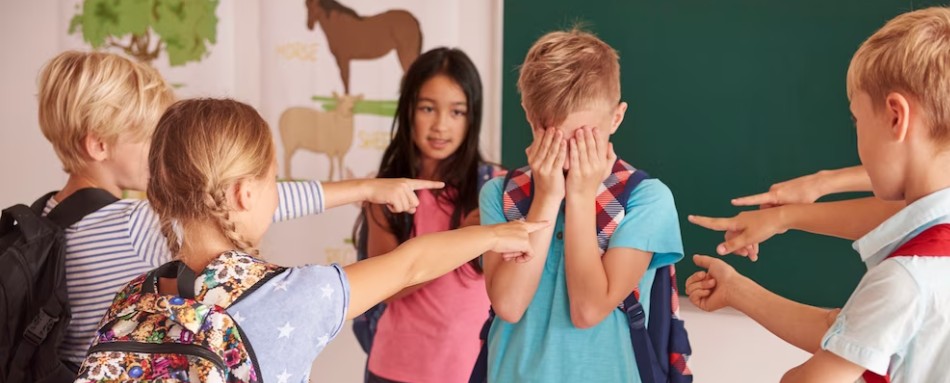
Youth Violence Prevention

Youth Violence Prevention
Youth violence is a multifaceted problem with far-reaching consequences. It encompasses physical assaults, bullying, cyberbullying, and gang violence. These acts not only leave physical scars but also inflict deep emotional and psychological wounds. Victims of violence may experience anxiety, depression, post-traumatic stress disorder (PTSD), and difficulty forming healthy relationships.
The correlation between violence and mental health cannot be ignored. Many perpetrators of violence are grappling with their mental health challenges, such as depression, anxiety, or trauma.
National Youth Violence Prevention Week shines a spotlight on this crucial link, emphasizing the importance of addressing mental health issues as a proactive measure against violence. By providing young people with the necessary support and resources to manage their mental well-being, we can mitigate the risk of them resorting to violence or becoming victims of it.
Taking a stand
Empowering both youth who may be victims and those who may be at risk of perpetrating violence involves equipping them with the tools and resources needed to navigate conflicts and manage their emotions constructively. Here are some strategies that can help:
- Conflict Resolution Skills: Teach youth effective conflict resolution techniques, such as active listening, empathy, and compromise. Encourage them to seek peaceful resolutions to disagreements and disputes, rather than resorting to violence as a means of resolving conflicts.
- Anger Management Techniques: Provide youth with strategies for managing anger and frustration in healthy ways. This may include deep breathing exercises, mindfulness techniques, or finding constructive outlets for their emotions, such as physical activity or creative expression.
- Education on Healthy Relationships: Provide comprehensive education on healthy relationships, consent, and boundaries. Help youth recognize the signs of unhealthy or abusive relationships and empower them to seek help if they find themselves in such situations.
- Positive Coping Mechanisms: Encourage youth to develop positive coping mechanisms for dealing with stress and adversity. This may include engaging in hobbies or activities they enjoy, spending time with supportive friends and family, or practicing self-care routines.
- Resilience Building: Help youth build resilience by teaching them skills for bouncing back from setbacks and adversity. Encourage a growth mindset, where they view challenges as opportunities for growth and learning rather than insurmountable obstacles.
- Safety Planning: For youth who may be at risk of violence, develop safety plans that outline steps they can take to protect themselves and seek help if they feel unsafe. Ensure they know how to access emergency resources, such as hotlines or local support services. Empowering youth to avoid violence and resist feelings or urges of violent actions involves equipping them with practical strategies and resources to navigate challenging situations.
- Seek Support: Whether you're a victim or a perpetrator experiencing feelings of anger, frustration, or hopelessness, reaching out for support is crucial. This could involve confiding in a trusted friend, family member, teacher, counselor, or mental health professional. Having someone to talk to can provide perspective, comfort, and guidance in managing difficult emotions.
- Develop Emotional Intelligence: Understanding and managing emotions is essential for preventing violent outbursts. Practice techniques such as deep breathing, mindfulness, and self-reflection to gain control over their emotional responses. Learning to identify triggers and finding healthy outlets for expression, such as journaling, art, or physical activity, can help diffuse tension and reduce the likelihood of resorting to violence.
Conclusion:
National Youth Violence Prevention Week serves as a poignant reminder of our collective responsibility to safeguard the well-being of future generations. By prioritizing mental health, raising awareness, and empowering youth to take a stand against violence, we sow the seeds of a safer, more compassionate society.
By empowering youth with these strategies and resources, we can help them avoid violence and navigate conflicts in healthier, more constructive ways. It's essential to create supportive environments that foster empathy, resilience, and non-violent communication, laying the groundwork for a safer and more peaceful future.
Articles
Build your awareness and get inspired with our researched articles on how you can strengthen your well-being
Popular Topics
An OTP has been sent to the email address
provided.
Please check your Inbox and Spam folders.

What Would You Like to Speak with a Specialist About?
Mental Fitness Journey starts Now!
Chearful Connects you with Top-tier Qualified Wellness specialists for the Price of a cup of Coffee!

Next Steps
- A Client Team member will reach out to you to schedule a session with the most suitable specialist.
- You will receive an email with a 10% Discount Code* for your 1st session.
- We invite you to Explore the Platform & Sign Up today! *Upto a maximum of $10 discount on a session purchased




 1711 Read
1711 Read



































